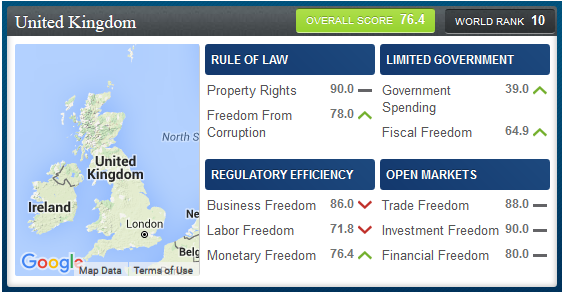President Donald Trump's use of Israel's separation wall as an example of a valid security measure is based on gross ignorance, at best. Israel's wall separates families from their land, communities from each other, and often communities from educational, medical and religious services [Finbarr O'Reilly/Reuters]
On January 27, as proof of the effectiveness that walls can have in preventing the movement of people between borders, United States President Donald Trump told Sean Hannity of Fox News: "A wall protects. All you have to do is ask Israel. They were having a total disaster coming across and they had a wall. It's 99.9 percent stoppage."
One could say, after all, that it's the Palestinians who were "having a total disaster coming across". Since 1967, Israel has built some 250 illegal settlements and outposts on Palestinian land in the West Bank and occupied East Jerusalem, in which more than 600,000 Israelis now live, in violation of the Fourth Geneva Convention.
Putting that aside for the moment, there are several key problems with Trump's claim. The first is the wall's raison d'etre: it's a "separation" wall, not a "security" wall, according to its name in Hebrew (gader hafrada). It was originally conceived in 2000, by Ehud Barak's government as a negotiation threat to Palestinian Liberation Organization leader, Yasser Arafat: "show more flexibility or we'll unilaterally create a consolidated demographic border". Fast forward a few years, and that threat materialised with profound humanitarian and economic consequences that continue to be felt by the Palestinians.
Border constrictor
A glance at a map detailing the separation wall's route quickly reveals that the vast majority of it - 85 percent - is, or is planned to be, built within the West Bank, not along the Green Line or the 1949 Armistice Line, the border between Israel and the Palestinian West Bank recognised by the international community.
This annexation accounts for nearly 10 percent of the West Bank and includes prime agricultural land and strategic water reserves. At one point, the wall cuts 22km deep into the West Bank.
The purpose of its meandering deviation from Israel's border, and into the West Bank, is to unilaterally annex the land on which the majority of Israel's illegal settlements and outposts have been built.
It's a border constrictor for Palestinians - coupled with an elaborate matrix of movement and access restrictions - that separate families from their land, communities from each other, and often communities from educational, medical and religious services.
The wall has also separated Palestinian towns and cities from Jerusalem, Palestine's economic, cultural and religious centre.
In 2004, the International Court of Justice's Advisory Opinion on the illegality of Israel's separation wall, among other things, stated that the wall's route deep into the West Bank to annex Israeli settlements, and allow space for them to develop and expand, proved that security was not the main motivation behind the construction of the wall.
Several highly respected international and Israeli NGOs concluded the same. Israeli NGOs BIKOM and B'tselem stated in a report published in 2005:
"[I]it is clear that contrary to the [security] picture portrayed by the state, the settlement-expansion plans played a substantial role in the planning of the Barrier's route. The report shows that not only were security-related reasons of secondary importance in certain locations, in cases when they conflicted with settlement expansion, the planners opted for expansion, even at the expense of compromised security."
'99.9 percent stoppage'
The second problem with Trump's claim is the alleged "99.9 percent stoppage". For starters, the wall is only two-thirds complete. A rector at the Tantur Ecumenical Institute, a centre of theological research between Jerusalem and Bethlehem, told me: "An incomplete wall is about as effective as a mosquito net that covers two-thirds of you. Would you buy one to protect you?"
The wall was also not primarily responsible for stopping Palestinian attacks on Israelis during the Second Intifada. Rather, the steep drop in attacks in 2005 was primarily due to a tactical decision by Hamas and other Palestinian political organisations to suspend these attacks, focusing instead on the Palestinian parliamentary elections imminent at the time - a fact reported in January 2006 by Shin Bet, Israel's intelligence agency.
While the separation wall has had a part to play in making these attacks more difficult, a pervasive Israeli security intelligence network and military presence on the ground inside the West Bank - in tandem with a complicit Palestinian Authority - play a greater role.
In 2009, Yuval Diskin, then head the Shin Bet, said that the wall didn't need to be completed as Israeli military intelligence was sufficiently robust to thwart any Palestinian attacks from the West Bank.
addition, on any given day there are tens of thousands of Palestinians, predominantly labourers, who smuggle themselves inside Israel to seek work.
At obscure points around Jerusalem, one can see Palestinian labourers scaling the wall with makeshift ladders and disappearing into the distance, or can find ropes or resourcefully used skips that labourers have used to get into Israel.
It is clear that the primary reason for West Bank Palestinians to smuggle themselves into Israel is to find work, given the devastating effect of Israel's separation wall and occupation on the Palestinian economy.
Trump's use of Israel's separation wall as an example of a successful security measure is based on gross ignorance, at best. Its real damage comes in his championing and legitimising a wall built by Israel - an occupying, colonising power - predominantly inside the West Bank, in breach of international law. Such public statements enable Israel to continue its systematic violations of Palestinian rights with impunity.
Written By: William Parry (a freelance writer, author of Against the Wall: the art of resistance in Palestine, and co-director and co-producer of a short documentary, Breaking the Generations: Palestinian prisoners and medical rights).
































